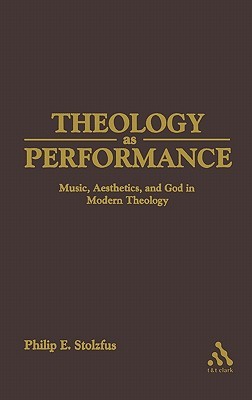
- We will send in 10–14 business days.
- Author: Philip E Stoltzfus
- Publisher: CONTINNUUM 3PL
- ISBN-10: 0567029212
- ISBN-13: 9780567029218
- Format: 15.2 x 22.9 x 2.3 cm, hardcover
- Language: English
- SAVE -10% with code: EXTRA
Reviews
Description
Theology as Performance breaks new ground in the growing conversation between modern theology and philosophical aesthetics. Stoltzfus proposes that significant moments in the Western development of the concept of God, in particular as represented in the figures of Friedrich Schleiermacher, Karl Barth, and Ludwig Wittgenstein, have been deeply influenced by concepts and approaches borrowed from the discipline of musical aesthetics. Each thinker develops fundamentally different ways of writing about God that have in significant respects been derived from each one's reading and writing about music. The aesthetic implications of Schleiermacher's so-called subjectivist turn, Barth's objectivist reaction, and Wittgenstein's language-game pragmatism can thus be fully understood only by attending to the musical culture and distinctly musicological discourses that gave rise to them. Stoltzfus constructs two trajectories of thought with which to trace theological reflection upon music throughout the pre-modern period: the traditions of Orpheus and Pythagoras. Schleiermacher's aesthetic approach, then, becomes a modern representative of the Orpheus trajectory, and Barth's approach a representative of the Pythagoras trajectory. Stoltzfus interprets Wittgenstein as putting forward a radical critique of these trajectories and pointing toward a third, "performative" theological-aesthetic method. Theology as Performance offers a provocative rethinking of the aesthetic roots of modern theology.
EXTRA 10 % discount with code: EXTRA
The promotion ends in 20d.20:22:31
The discount code is valid when purchasing from 10 €. Discounts do not stack.
- Author: Philip E Stoltzfus
- Publisher: CONTINNUUM 3PL
- ISBN-10: 0567029212
- ISBN-13: 9780567029218
- Format: 15.2 x 22.9 x 2.3 cm, hardcover
- Language: English English
Theology as Performance breaks new ground in the growing conversation between modern theology and philosophical aesthetics. Stoltzfus proposes that significant moments in the Western development of the concept of God, in particular as represented in the figures of Friedrich Schleiermacher, Karl Barth, and Ludwig Wittgenstein, have been deeply influenced by concepts and approaches borrowed from the discipline of musical aesthetics. Each thinker develops fundamentally different ways of writing about God that have in significant respects been derived from each one's reading and writing about music. The aesthetic implications of Schleiermacher's so-called subjectivist turn, Barth's objectivist reaction, and Wittgenstein's language-game pragmatism can thus be fully understood only by attending to the musical culture and distinctly musicological discourses that gave rise to them. Stoltzfus constructs two trajectories of thought with which to trace theological reflection upon music throughout the pre-modern period: the traditions of Orpheus and Pythagoras. Schleiermacher's aesthetic approach, then, becomes a modern representative of the Orpheus trajectory, and Barth's approach a representative of the Pythagoras trajectory. Stoltzfus interprets Wittgenstein as putting forward a radical critique of these trajectories and pointing toward a third, "performative" theological-aesthetic method. Theology as Performance offers a provocative rethinking of the aesthetic roots of modern theology.


Reviews